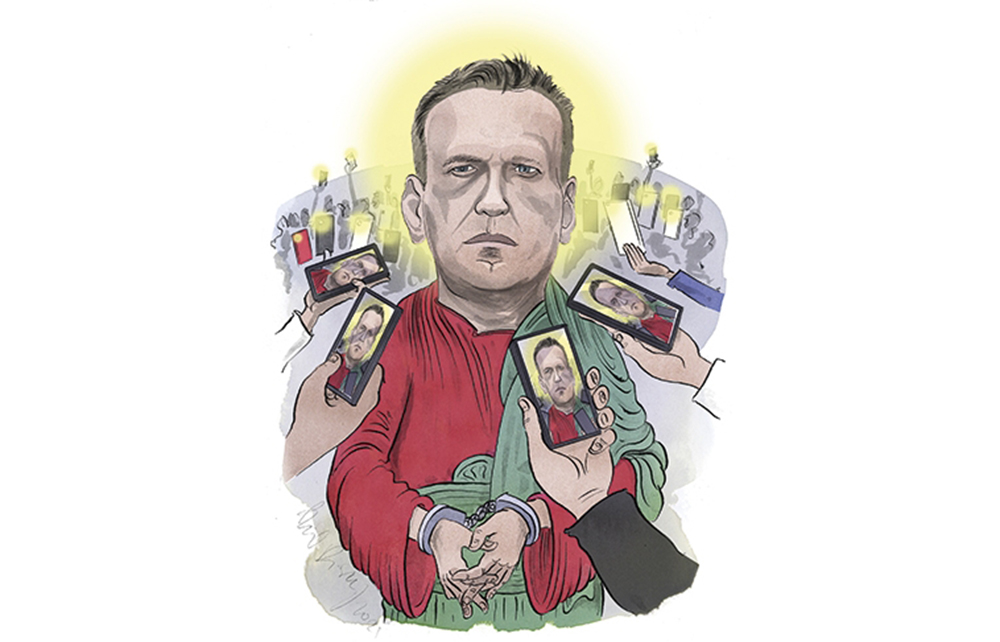There was a time before the invasion of Ukraine when even the Kremlin’s opponents would talk of living in ‘vegetarian’ times. Before 2022, independent news organisations like Dozhd TV, the New Times and Novaya Gazeta were marginalised but not banned. Public protest was punished, but for the most part with sentences in days and months, not years or decades. Even Alexei Navalny, the opposition’s highest profile leader, received a highly unusual suspended sentence after his conviction on trumped-up fraud charges in 2013. He remained free to goad the Kremlin with videos detailing massive corruption and run candidates in local elections until his poisoning by Russian secret police in August 2020.
Save your skin and fight on, or keep your honour and be buried in the prison system? There’s no easy answer
Times have changed. Earlier this month activist Vladimir Kara-Murza was convicted of treason and sentenced to a staggering 25 years in jail. Local councillor Ilya Yashin lost his appeal against an eight-and-a-half-year sentence for ‘discrediting the military’. Navalny himself, in jail since his return to Russia in January 2021 after recovering from novichok poisoning in Berlin, served his 12th spell in solitary confinement this month, was beaten up by prison guards and suffered sudden weight loss and acute stomach pain that made his allies suspect another attempt at slow poisoning. ‘They are killing Navalny in prison,’ said his associate Maria Pevchikh.
Putin’s machine of repression has become fully carnivorous – though the Kremlin has so far resisted calls from parliamentarians and propagandists to reinstate the death penalty for treason. No prominent opposition politician or journalist remains at liberty in Russia. Even Kara-Murza’s defence lawyer Vadim Prokhorov fled the country before the sentence was handed down for fear of suffering his client’s fate.
Navalny, Yashin and Kara-Murza could have fled abroad too, but chose not to.








Comments
Join the debate for just £1 a month
Be part of the conversation with other Spectator readers by getting your first three months for £3.
UNLOCK ACCESS Just £1 a monthAlready a subscriber? Log in